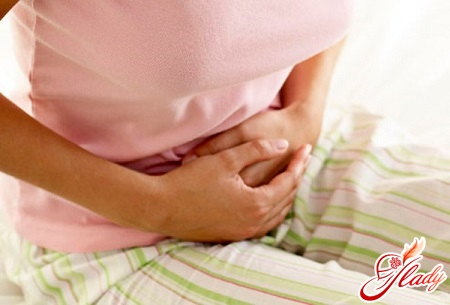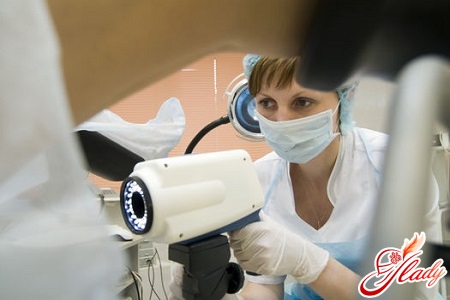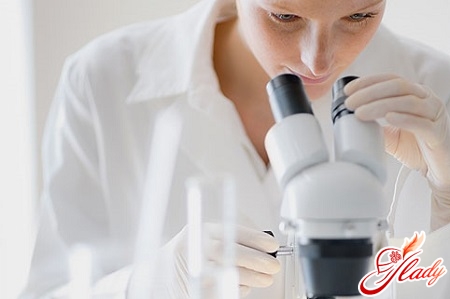
What is endometritis? What are the symptoms of endometritis? At what age is his appearance possible? What factors can cause it, what methods of endometritis treatment exist? These and many other issues related to this disease are of interest to many women. First of all, it is required to say that endometritis and endometriosis are two completely different diseases. With the timely and proper treatment of endometritis, the patient may be able to avoid complications associated with pregnancy and childbirth. Appropriate treatment of this disease leads to very good indicators and results. The woman's uterine cavity is sterile, no infection can get into it, because the endometrium protects her well at the same time with several protective systems: an acidic environment and a mucous membrane on the cervix, which contains antibodies. When the endometrium is an inflammatory process of endometrium, and this phenomenon can lead to serious complications and consequences. That is why it is highly recommended that women regularly undergo preventive examinations at a gynecologist. Due to such examinations the doctor can determine possible diseases in time and start their treatment. Quite often in women after childbirth, miscarriages and abortions develop endometritis, which is quite successfully treated. Endometritis is an inflammation of the uterine mucosa, which can be caused by viruses and pathogens such as streptococci, staphylococci, chlamydia, Trichomonas and E. coli.

Causes of this disease
Endometrium of the uterus is 2 layers: basal and functional. The structure of the functional layer itself is very sensitive and tender, its slightest damage can lead to the development of the endometrium. Damages themselves do not carry any serious complications, but penetrating through damage viruses cause inflammation of the endometrium of the uterus. Endometritis can occur in the following cases:
- inaccurate syringing;
- sounding of the uterine cavity;
- scraping of the uterine cavity;
- examination of the fallopian tubes.
The causative agents of this disease can be:
- tuberculosis microbacteria;
- chlamydia;
- E. coli;
- Proteus;
- diphtheria bacillus;
- mycoplasma;
- streptococci;
- enterobacter;
- Klebsiella.

Symptoms of the disease
Symptoms of endometritis in the initial stagesshows not too clearly and actively. Therefore, it is almost impossible for a woman to notice a disease at the initial stage of development and related changes in the body. As a result, women usually come to the doctor with a delay. Endometritis of the uterus distinguishes between chronic and acute. The acute stage mainly occurs after mechanical damage. And chronic is the result of infection with various sexually transmitted infections. Symptoms of acute endometritis:
- lack of appetite;
- headache;
- Painful and aching pain in the lower abdomen;
- temperature up to 39 ° С;
- pain in the lower back;
- uterine bleeding and discharge from the vagina, similar in appearance to clots of pus and blood with an unpleasant odor.
If a woman suddenly finds herself listedsigns, then in this case it is required to immediately seek help from a doctor, because the endometritis expands rather quickly and at the same time affects large areas. The more time passes before the doctor calls, the more difficult it will be to treat this disease. Symptoms of chronic endometritis The appearance of chronic endometritis has nothing to do with gynecological diseases in women. To its pathogens most often include various sexually transmitted diseases. As a result, all symptoms of endometritis will correspond to common infectious diseases. An accurate diagnosis can be established only on the basis of the analyzes. Symptoms of endometritis of chronic form
With such signs a woman needsimmediately seek help from a qualified technician. Often, chronic endometritis becomes a major problem associated with fetal nurturing and infertility in the future. But if you find it and go through the whole course of treatment, it can be avoided. 
Treatment of endometritis
If the disease was detected in a timely manner, thentreatment can be done on an outpatient basis. But with endometritis of the uterus, outpatient treatment is necessarily carried out under the constant supervision of the treating gynecologist. If treatment of endometritis is carried out in a hospital, then this disease was discovered late or already started. As a rule, endometritis treatment is carried out according to the following scheme:
- antibiotic therapy;
- antibacterial therapy;
- cleaning the uterine cavity;
- purification of blood from toxins.
Treatment of acute endometritis Timelydiagnosing and during the treatment of acute endometritis started promises a favorable recovery of a woman, and in the future there will not be any problems in pregnancy. If after birth in the uterus remained the remains of the placenta or after an abortion - the remains of the fetus, it can cause inflammation of the endometrium. In this case, you need to scrape the uterine cavity. Treatment is carried out in the following ways:
- reception of vitamins and immunomodulators;
- intravenous administration of antibiotics;
- intramuscular injection of antibiotics.
Treatment of chronic endometritis From aboveIt is clear that the symptoms of chronic endometritis clearly differ from acute symptoms. Accordingly, with different endometrium treatment will be different. When detecting chronic endometritis, to find out the susceptibility of infections to various antibiotics, a woman takes smears. Then the treatment is carried out according to a special scheme using antiviral agents. Treatment of chronic endometritis is considered effective if the drugs are injected into the uterine mucosa, because this method gives a good opportunity to concentrate more drugs in the inflammatory focus. In addition, chronic endometrium treatment can be carried out with oral hormonal tablets. In this case, most often such therapy is prescribed for women who plan in the future pregnancy and childbirth. It is also possible to separate the adhesions, which is performed with the help of surgical intervention. Treatment of purulent endometritis Most often, purulent endometritis is treated by removing pus and mechanically cleaning dead tissue from the uterine cavity. The uterus is cleaned under general anesthesia, and then hormone therapy is prescribed. At the end of such treatment, physiotherapy is prescribed, thanks to which there is an increased outflow of pus and mucus from the uterine cavity.
Treatment with folk remedies
Increasingly popular in the fight against variousdiseases are gaining folk medicine. Known folk remedies that help cure and endometritis. But it is worth noting that this disease is very serious. In order to avoid possible complications, diagnosis, treatment and supervision are required from a qualified gynecologist. In the endometrium, the following herbs are taken in equal parts: the root of the althaea, the cudweed, the lavender, the leaves of the sweet clover, the levise, the wormwood, the leaves of the blueberry, the leaves of the nettle and the pine buds. All herbs must be thoroughly mixed and crushed. Then pour into the thermos 2 tablespoons of herbs and all this pour 3 cups of boiling water. This infusion is aged 12 hours, then it should be filtered. Take ready infusion of 1/3 cup 3 times a day. The course of treatment is 2 months. In the treatment of endometritis laurel noble has proved to be well established. In this case, a bucket of hot water and 20 g of noble laurel is required for treatment. The laurel is poured with boiling water, it is infused for 30 minutes, then the infusion is diluted with hot (tolerable for the body) water. Treatment is carried out with the help of sedentary baths. When treating with folk remedies, if it becomes much easier and the characteristic symptoms have disappeared, it is recommended that women in any case seek medical advice. Only a doctor can assess the effectiveness of treatment on the basis of necessary tests. Since there is a risk that the symptoms are removed, and the disease itself does not disappear. This situation can lead to serious health consequences for a woman, up to infertility.









